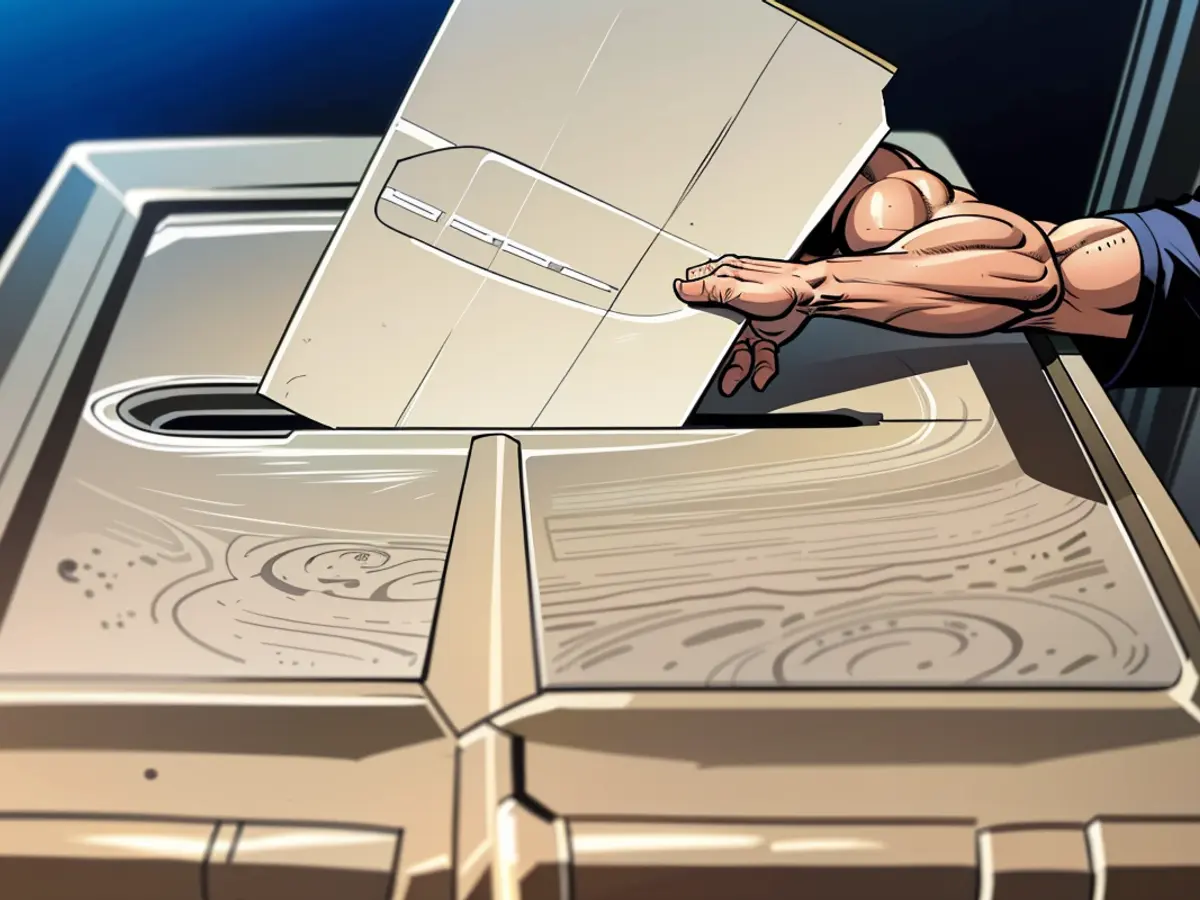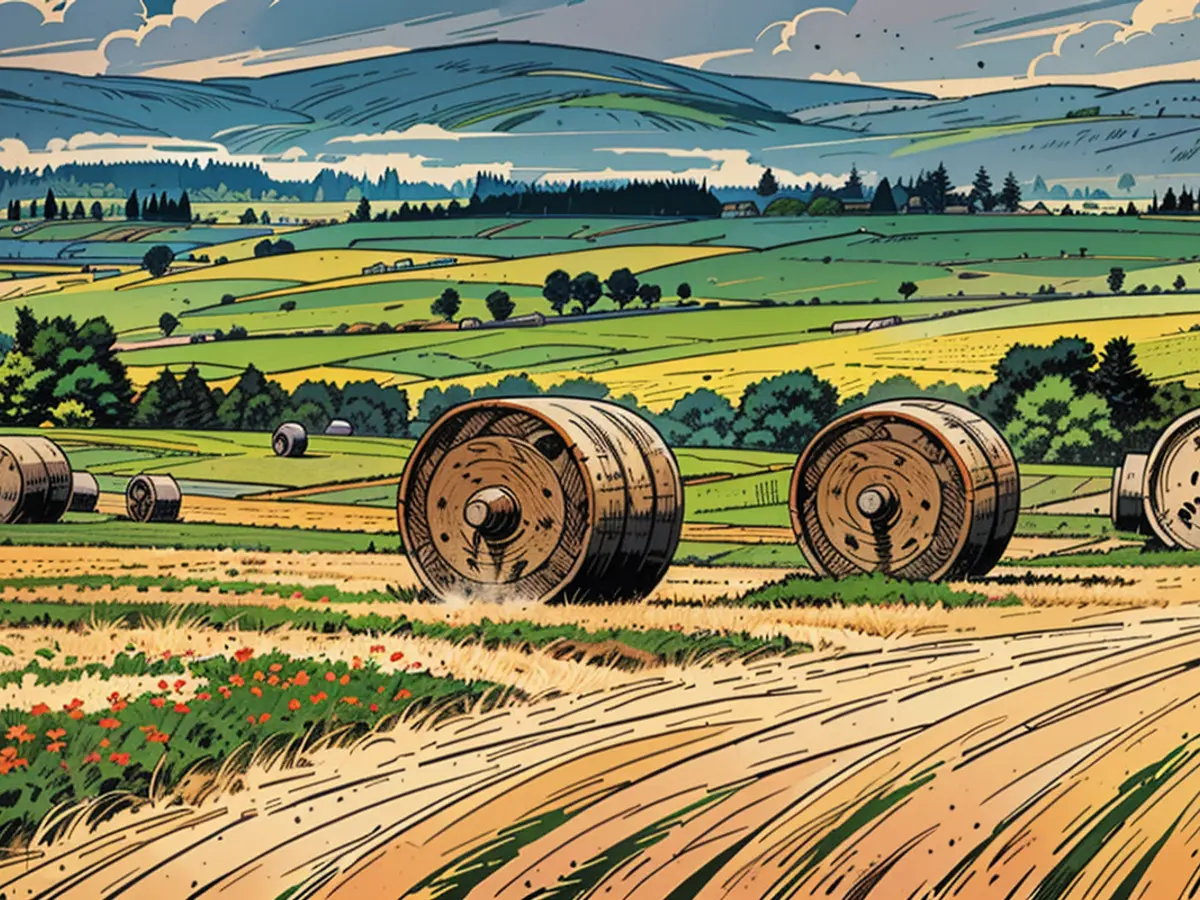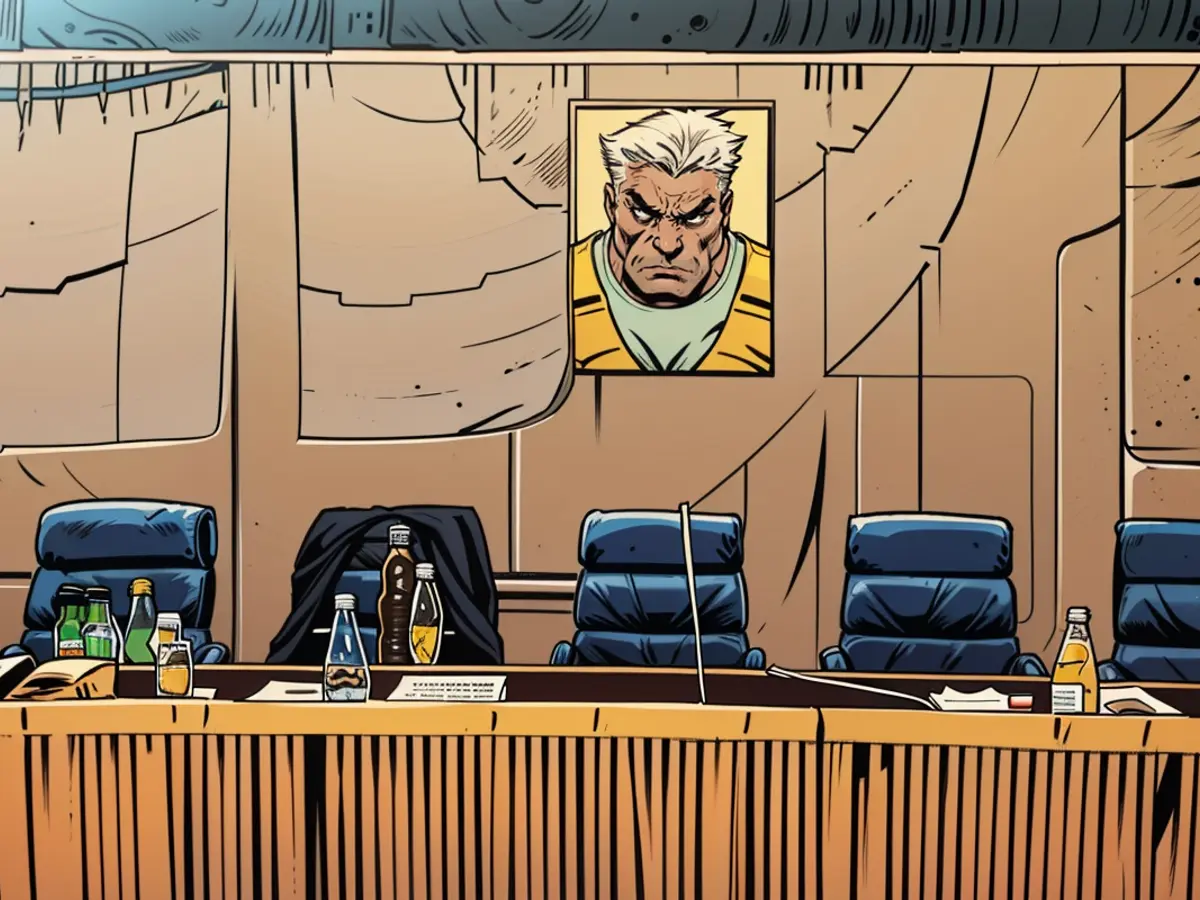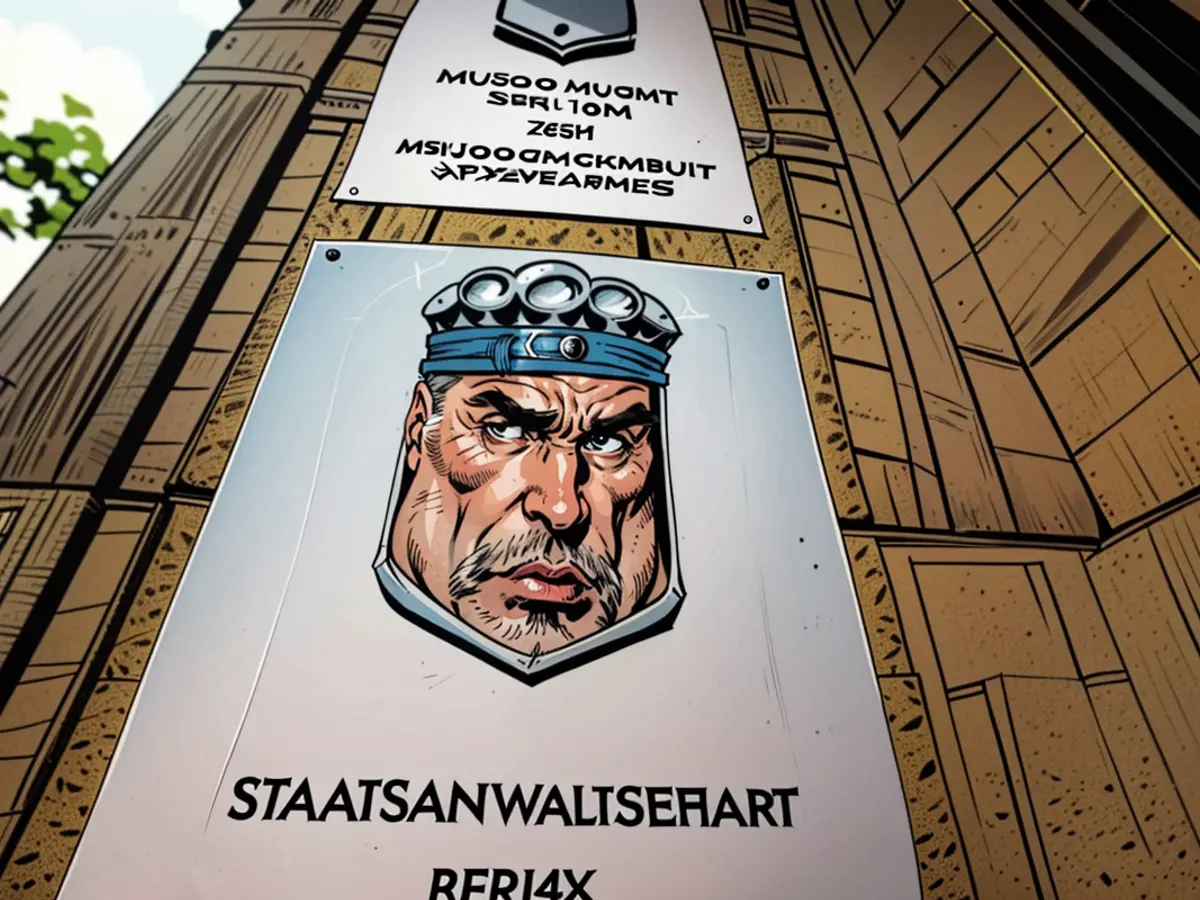- The German leadership has likewise been petitioned to determine the pathway ahead for the European Union.
Before the Saxony state election, the CDU hasn't explicitly mentioned potential coalition partners. "We need to keep grinding," said Saxony's Minister President Michael Kretschmer on ZDF's morning program. He didn't specify whom he'd prefer to team up with post-election, but all parties ruled out working with the AfD.
On ZDF, leaders of major Saxon parties were individually interviewed. Not all discussed points directly affected the Free State.
Kretschmer again advocated for reduced weapon deliveries to Ukraine and talks with Russia. Funds intended for Ukraine's weapons should be allocated to a missile defense system here instead. "If you've got a shady and dangerous neighbor, only deterrence works."
He also reiterated his push for a rigorous deportation policy. Over 300,000 people sought asylum in Germany last year. "We need to bring that down to 30,000 to 40,000," said Kretschmer.
According to ZDF's Politbarometer, the CDU leads with 34%, with the AfD following close behind at 30%. The Alliance for Progress and Social Justice (BSW) is third with 11%, while the SPD and Greens each have 6%, and the Left is at risk of not meeting the 5% threshold with 4%. Based on these figures, the CDU could maintain its previous alliance with the SPD and Greens. The new Saxony state parliament will be elected on September 1.
For the AfD in Saxony, education policy is a primary campaign concern ahead of the September 1 election. AfD lead candidate Jörg Urban asserted on ZDF that Saxony is "blind to the rest" in education. Existing teachers should be motivated, part-time staff should switch to full-time, and retirees encouraged to continue working. Immigration should also be significantly reduced to make Saxony "unattractive" to people seeking to enter Germany's social system and potentially engage in criminal activities.
On the other hand, the Alliance for Progress and Social Justice (BSW) in Saxony prioritizes peace in Europe. "We want peace talks. A security architecture is only achievable with Russia," said BSW lead candidate Sabine Zimmermann. She opposed additional US weapon stations in Germany, asserting that it would escalate tensions and potentially make Germany a target.
Saxony's SPD lead candidate Petra Köpping, however, proposed the "Saxony Fund 2025," a 10 billion euro investment in modernizing and renovating schools and hospitals, and promoting a climate-neutral economy. Additional investments in care and affordable housing, as well as enhancement of social cohesion, are also included. "Social cohesion is present, but the middle needs to speak up and take action, even in everyday life," the 66-year-old emphasized.
In the context of discussing potential coalition partners for the CDU after the Saxony state election, it's worth considering that Kretschmer hasn't explicitly mentioned any, as he stated, "We need to keep grinding." Furthermore, the question of the coalition's composition post-election becomes increasingly significant, given the tight race between the CDU and the AfD, with the CDU leading by 4 percentage points.






